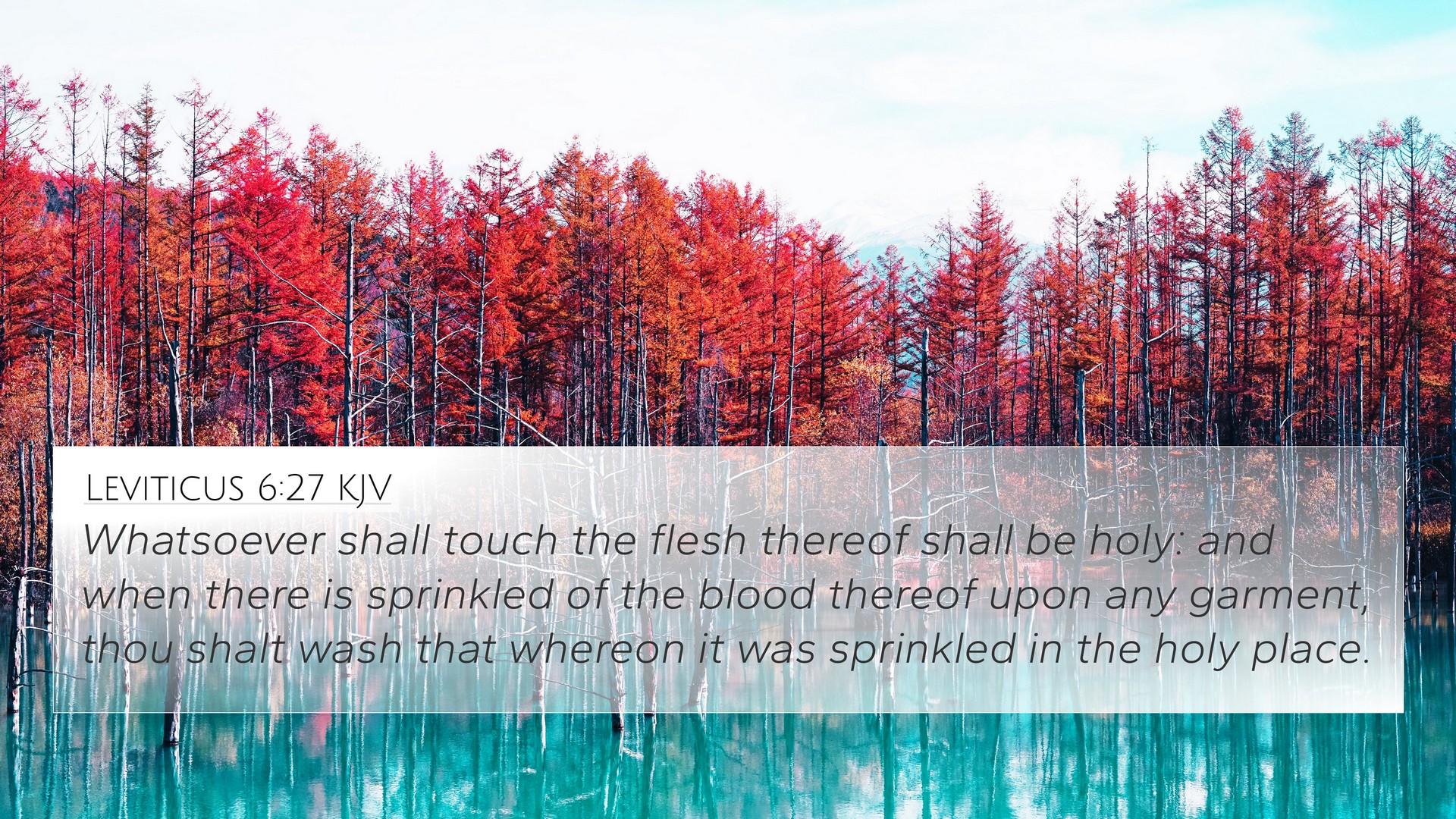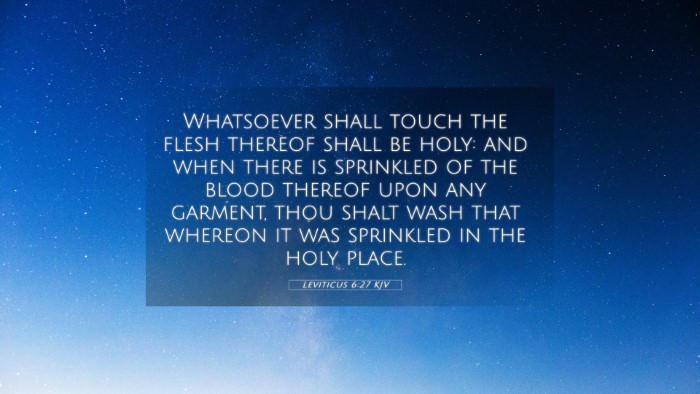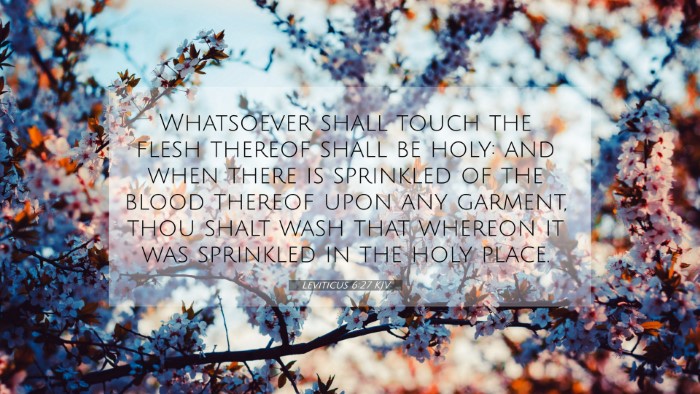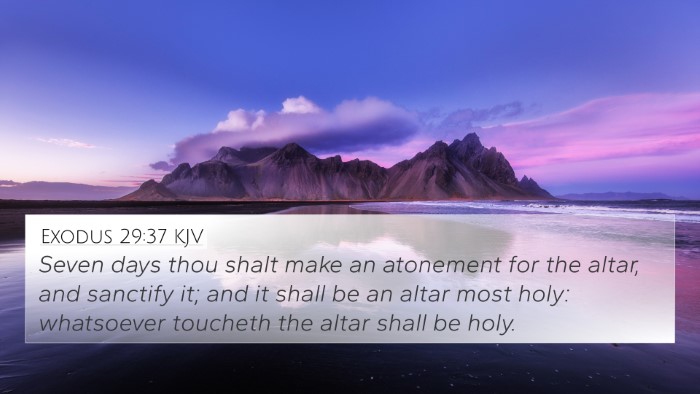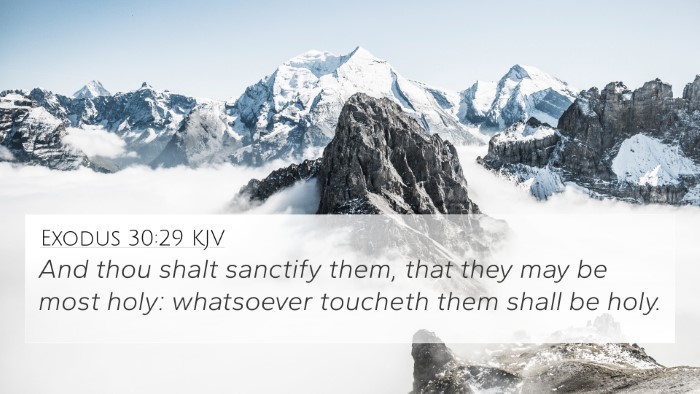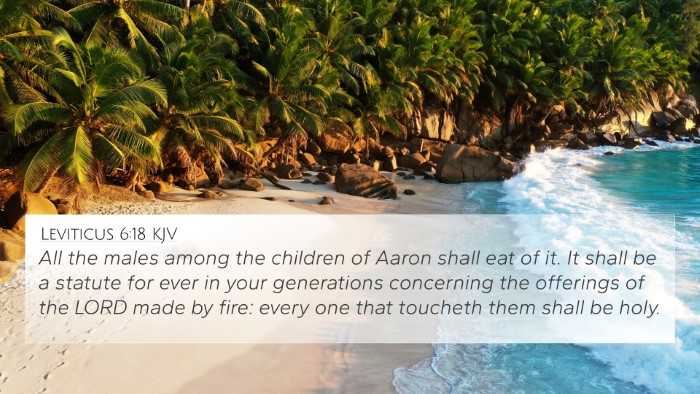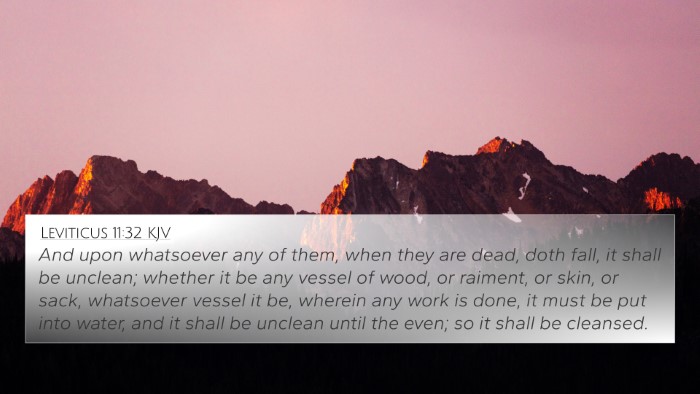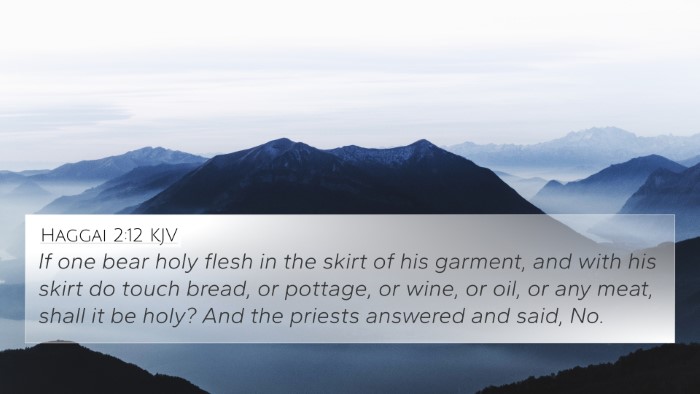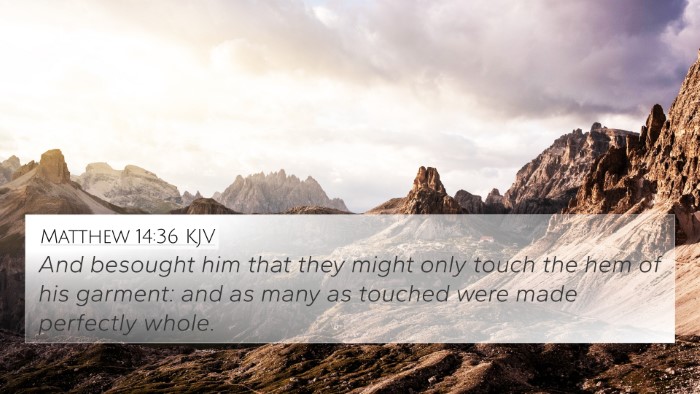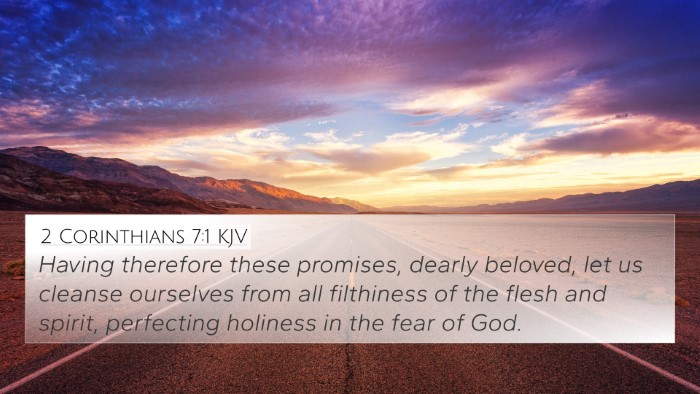Meaning and Interpretation of Leviticus 6:27
Verse: "And the remainder of the flesh of the sacrifice shall be Aaron's and his sons': it is a most holy thing of the offerings of the LORD made by fire." (Leviticus 6:27)
Summary of Leviticus 6:27
This verse addresses the allocation of the flesh remaining after a sacrificial offering. Aaron and his sons, as priests, are designated to receive this most holy portion of the offering dedicated to the LORD. This illustrates the significance of holy offerings in worship and the role of the priesthood in mediating between God and the people.
Commentary Insights
Matthew Henry's Commentary
Henry emphasizes the importance of the sacrificial system, illustrating that the leftovers of the offerings are not mere remnants, but are set apart for those who serve in the sacred duty of priesthood. These offerings represent the people's dedication to God and serve as a reminder that priests must live from the things that belong to God. It signifies the inclusion of priests in worship and their sustenance through holy things.
Albert Barnes' Notes on the Bible
Barnes notes that the "remainder of the flesh" highlights God’s provision for the priests from the people's offerings. This provision is necessary for the sustenance of their families and affirms the seriousness of their priestly duties. He mentions that the phrase "most holy" indicates that not all offerings are treated equally; some possess greater sanctity and hence can only be consumed by those appointed by God.
Adam Clarke's Commentary
Clarke expands on the notion that this system underscores the holiness of God as manifested in the offerings. The concept of the "most holy" emphasizes the separation of certain offerings for specific purposes and individuals. He further explains that such distinctions not only elevate the priest's role but reinforce the people’s reverence toward God through sacrificial observances.
Bible Cross References
- Exodus 29:27: Discusses the allocation of the priest's share of offerings.
- Leviticus 7:6: Specifies who may eat the offerings and under what conditions.
- Numbers 18:8-10: Emphasizes the duties of the priests and their rights to sacred offerings.
- Deuteronomy 18:1-2: Details the inheritance of the Levites from the offerings made by the people.
- Malachi 1:6-8: Condemns offering blemished sacrifices, affirming the holiness required in worship.
- Hebrews 13:10: Connects the sacrificial system to the New Covenant, illustrating the fulfillment of sacrifices in Christ.
- 1 Peter 2:9: Declares believers as a 'royal priesthood' serving under God, akin to the priests of old.
- Romans 15:16: Paul speaks of ministering the gospel to the Gentiles as an offering acceptable to God.
- Isaiah 66:20: Prophetic imagery of offerings being made from all nations to the Lord, tying back to the priestly service.
- Matthew 5:23-24: Jesus emphasizes reconciliation with others before offering gifts at the altar, linking back to sacrificial principles.
Understanding through Connections
This verse serves as a conduit to understanding the establishment of a sacred order within Israel’s worship practices. The cross-references establish strong thematic links between the offerings, priestly duties, and the holiness attributed to God and worship. The connections made between the Old Testament sacrificial system and New Testament teachings on sacrifice, worship, and fellowship illustrate a divine continuity.
Importance of Cross-Referencing
Engaging in cross-referencing Biblical texts can deepen one’s understanding of Scripture. For individuals seeking to grasp the meaning and implications of Leviticus 6:27, utilizing tools for Bible cross-referencing, such as a Bible concordance or a Bible cross-reference guide, can uncover vital connections between various scripture passages.
Techniques for Effective Cross-Referencing
- Identify key themes: Understand the main themes in Leviticus 6:27 and look for parallel passages.
- Utilize a concordance: A concordance can help to locate verses with similar keywords and themes.
- Explore commentaries: Commentaries provide insights that connect different texts and help in comparative analysis.
- Engage in thematic studies: Group verses according to themes, such as holiness, sacrifice, and priesthood.
- Participate in Bible study groups: Discuss interpretations and connections with others for deeper understanding.
Conclusion
In essence, Leviticus 6:27 is more than a description of sacrificial protocol; it encapsulates the importance of holiness and the necessary roles ordained by God in the act of worship. By delving into cross-references and drawing connections between scripture throughout the Bible, one can gain a more profound appreciation of the continuity and richness of Biblical teachings, enhancing both personal faith and communal understanding.
